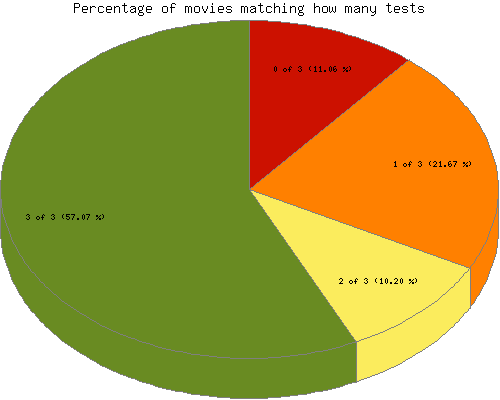Another thing worth pointing out, which is a bit more subtle, is the shallowness of typical strong female characters.
Here's a great article explaining it:
Why Strong Female Characters Are Bad for Women | Overthinking It
As this thread has pointed out, women are often underrepresented in broadly popular movies. Sometimes to an almost hilarious degree.
Sometimes, it seems when men try to fix that problem and create "strong female characters", they improve the situation slightly but it's still goofy and unbalanced.
-Having a token strong female character seems to be expected as sufficient. Like if there's 20 guys and 1 strong young hot woman that's also a love interest to one of the male characters, then that's cool, because it's diverse. She has a gun too! Even though women represent 50% of the population, and most movies in general do not rely on the protagonists brute strength to win the day. And often if there's a strong female character she still needs help in the third act and otherwise isn't the central protagonist. Like, Star Wars is okay 'cause it has Leia, or Lord of the Rings is okay 'cause Eowyn put a sword through that guy's face, or the Avenger's is cool because Black Widow is in it.
-An undeveloped, overpowered (in combat, intelligence, or whatever), hot, young secondary female character with limited screen time from the man's point of view is not a "strong woman". It's a caricature of a strong woman; the perspective of a woman from a certain type of male writer's point of view. Real, complex, interesting characters are flawed and dynamic. There's no shortage of flawed, dynamic, complex, interesting male characters in movies. But women are often weak, or under-represented in numbers, or exaggerated into powerful but rather undeveloped physically attractive characters. Let's have some more complex and interesting female characters that do not revolve around central male characters and primarily interact with them. Even sufficiently complex and developed secondary female characters would be welcomed. Scientists, explorers, sometimes fighters, leaders, dynamic helpers, teachers, narrators, protagonists in general, etc. (Several examples are given in the linked article.)
Here's a great article explaining it:
Why Strong Female Characters Are Bad for Women | Overthinking It
As this thread has pointed out, women are often underrepresented in broadly popular movies. Sometimes to an almost hilarious degree.
Sometimes, it seems when men try to fix that problem and create "strong female characters", they improve the situation slightly but it's still goofy and unbalanced.
-Having a token strong female character seems to be expected as sufficient. Like if there's 20 guys and 1 strong young hot woman that's also a love interest to one of the male characters, then that's cool, because it's diverse. She has a gun too! Even though women represent 50% of the population, and most movies in general do not rely on the protagonists brute strength to win the day. And often if there's a strong female character she still needs help in the third act and otherwise isn't the central protagonist. Like, Star Wars is okay 'cause it has Leia, or Lord of the Rings is okay 'cause Eowyn put a sword through that guy's face, or the Avenger's is cool because Black Widow is in it.
-An undeveloped, overpowered (in combat, intelligence, or whatever), hot, young secondary female character with limited screen time from the man's point of view is not a "strong woman". It's a caricature of a strong woman; the perspective of a woman from a certain type of male writer's point of view. Real, complex, interesting characters are flawed and dynamic. There's no shortage of flawed, dynamic, complex, interesting male characters in movies. But women are often weak, or under-represented in numbers, or exaggerated into powerful but rather undeveloped physically attractive characters. Let's have some more complex and interesting female characters that do not revolve around central male characters and primarily interact with them. Even sufficiently complex and developed secondary female characters would be welcomed. Scientists, explorers, sometimes fighters, leaders, dynamic helpers, teachers, narrators, protagonists in general, etc. (Several examples are given in the linked article.)

